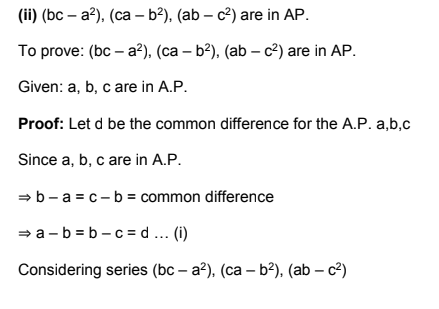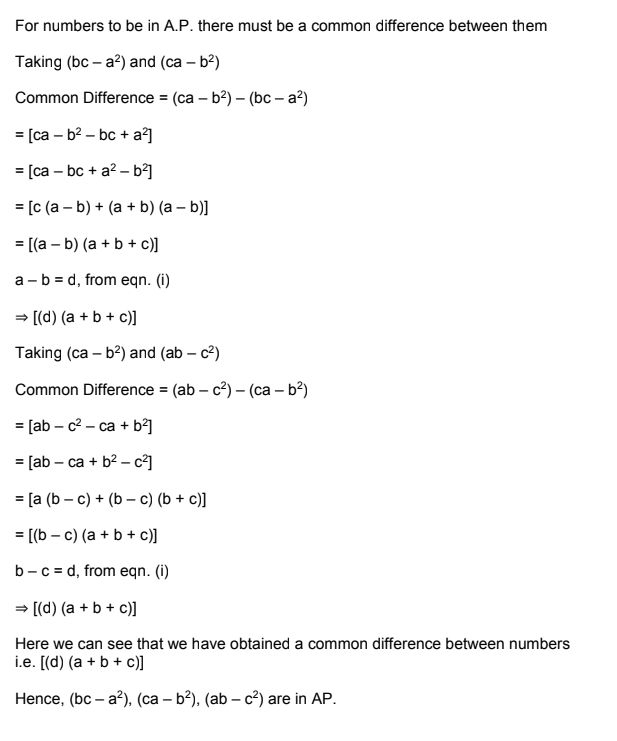(b + c – a), (c + a – b), (a + b – c) are in AP.
To prove: (b + c – a), (c + a – b), (a + b – c) are in AP.
Given: a, b, c are in A.P.
Proof: Let d be the common difference for the A.P. a,b,c
Since a, b, c are in A.P.
⇒ b – a = c – b = common difference
⇒ a – b = b – c = d
⇒ 2(a – b) = 2(b – c) = 2d … (i)
Considering series (b + c – a), (c + a – b), (a + b – c)
For numbers to be in A.P. there must be a common difference between them
Taking (b + c – a) and (c + a – b)
Common Difference = (c + a – b) – (b + c – a)
= c + a – b – b – c + a
= 2a – 2b
= 2(a – b)
= 2d [from eqn. (i)]
Taking (c + a – b) and (a + b – c)
Common Difference = (a + b – c) – (c + a – b)
= a + b – c – c – a + b
= 2b – 2c
= 2(b – c)
= 2d [from eqn. (i)]
Here we can see that we have obtained a common difference between numbers i.e. 2d
Hence, (b + c – a), (c + a – b), (a + b – c) are in AP.


